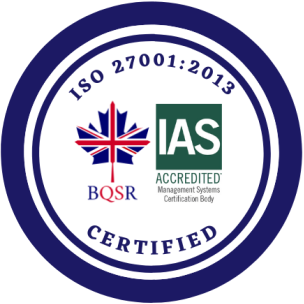In the intricate world of recruitment, keeping an eye out for red flags is essential.
These telltale signs can alert us to potential issues with candidates that may not be immediately evident.
We recently interviewed some of the top recruitment influencers —Gina Morrison, Faye Spruce, Michael Blakely, and several others, so know what the most common candidate red flags are and how to identify them sooner. The revelations are surprising!
Do you know the most common candidate red flag spotted by recruitment experts?
Lack of preparation or lack of interest in the role or company is the most common red flag that our expert panel pointed out. This is often manifested in ways like:
- Not doing research about the company or the role
- Showing up unprepared for interviews
- Not being able to articulate why they’re interested in the role or the company
- Not being able to discuss the company or the job description in a knowledgeable way
While this one is still easy to spot, there are red flags that can totally take the recruiters by surprise. Watch the full video here to know what other red flags our experts spoke about.
To make it easier, we have summarized this quick list from this video – and some more ammo on how to spot these red flags early on in the recruitment process.
10 candidate red flags to watch out for during the hiring process
1. Frequent job changes and issues with managers
A candidate who cites a pattern of difficulties with managers as the reason for job changes might be a concern.
This could indicate a lack of conflict resolution skills or even an inability to accept managerial authority. These traits can lead to friction in a team dynamic and create a disruptive work environment.
As Thomas Jennings, an Executive Recruiter puts it, “You start catching these trends of ‘Well, I had an issue with my manager, and I had another issue with a manager’…maybe that cand
idate is actually the issue.”
2. Inconsistent communication
A candidate’s level of engagement during the hiring process can offer significant insights.
If their responses are delayed, or show lack of interest, it may suggest a commitment issue for the role or the company, “ If someone’s not prepared anything at all, it’s a big warning sign for me”, points out Faye Spruce, Recruitment Manager at Moore Kingston Smith.
A lack of preparation may not only suggest poor time management skills but also a non-serious attitude towards job-seeking.
3. Resume red flags

Frequent job changes without credible reasons, or a resume that seems overly tailored to match a specific job description, could raise concerns about a candidate’s stability or honesty.
It’s essential to be watchful for candidates who seem to be ticking off boxes rather than demonstrating genuine knowledge or interest in the role.
4. Questionable motivation
Michael Blakely, Co-Founder of Equitas believes a candidate’s motivation for a role can be a revealing indicator of their suitability.
If they haven’t researched the company or the role thoroughly, it could suggest a lack of interest.
This could lead to lower job satisfaction, subpar performance, and higher chances of them leaving the job prematurely.
5. The blame game
Aaron Gonsalves, Head of Talent Acquisition at i-Pharm Consulting mentions if a candidate always attributes professional failures or conflicts to others without taking any personal accountability, this could point to a lack of self-awareness or an unwillingness to learn and grow from past experiences.
Such a trait might adversely affect teamwork and create a toxic culture within the organization.
6. Withholding information
Inconsistencies between a candidate’s resume and their LinkedIn profile, or instances where they withhold information about previous employment, can be a serious concern.
It not only raises questions about their honesty but also about their respect for the recruitment process.
Thomas Jennings, believes transparency is something that is vital for building trust and ensuring a successful placement.
7. Badmouthing previous employers
If a candidate speaks negatively about previous employers or colleagues excessively, it might indicate a lack of professionalism and emotional intelligence.
Such behavior can be disruptive and toxic in a team environment, negatively impacting the overall work culture.
8. Performance evasiveness
If a candidate is hesitant or vague when discussing their past performance, it might suggest they’re not as successful as they claim.
As Aaron Gonsalves says, “If you’re really good at what you do you probably want to shout about it. You might want to tell everyone about how good you are.”
This reluctance could point to inflated achievements on their resume or an inability to evaluate their performance critically and honestly.
9. Missing interviews
A candidate missing a scheduled interview without prior notice shows a lack of respect for the interviewer’s time and a lack of seriousness about the role.
It could also be indicative of poor time management skills, which could affect their job performance if hired.
10. Compensation-driven attitude
If a candidate is primarily motivated by compensation rather than growth, challenge, or the role itself, it’s a red flag.
It suggests a lack of long-term commitment or interest in the role beyond monetary gain.
In the words of Desiree Goldey, a Talent Operations Leader, “If they’re not excited to leave for growth or challenge or whatever it’s strictly for five thousand more dollars. I also question those types of things.”
It’s a reminder that while compensation is important, it should not be the sole motivator for a job change.
As we conclude this journey through some of the most critical red flags to watch out for in potential candidates, it’s clear that early detection is key to maintaining the integrity of your hiring process.
These tips, distilled from the wisdom of industry leaders, can provide a vital toolset for your recruitment endeavors.
Frequently asked questions
1. How can I avoid candidates with red flags?
The best way to avoid candidates with red flags is to have a thorough screening process.
This includes careful review of resumes, comprehensive interviews, and, when possible, background checks.
Listening carefully to a candidate’s answers during the interview can reveal a lot about their attitude, motivation, and overall suitability for the role.
2. How do I spot red flags in a resume?
Spotting red flags in a resume requires careful scrutiny.
Look for frequent job changes, which might suggest a lack of stability or commitment. Unexplained gaps in employment history can also be a red flag, although there can be legitimate reasons for this.
Vague descriptions of responsibilities, inconsistencies in dates or information across platforms, and poor formatting or spelling errors can all hint at potential issues.
Remember, it’s important to allow candidates to explain any potential red flags during the interview process.
3. How do you determine the best candidate?
Determining the best candidate involves a combination of factors. You need to evaluate their qualifications, skills, and experience to see if they align with the job requirements.
Assessing soft skills like communication, problem-solving abilities, and cultural fit within the company are also crucial.
Their enthusiasm and understanding of the role can also indicate their commitment and potential for success.
Lastly, reference checks can provide insights about their work ethic and past performance. The ideal candidate balances the right skills, a positive attitude, and genuine interest in the role.




